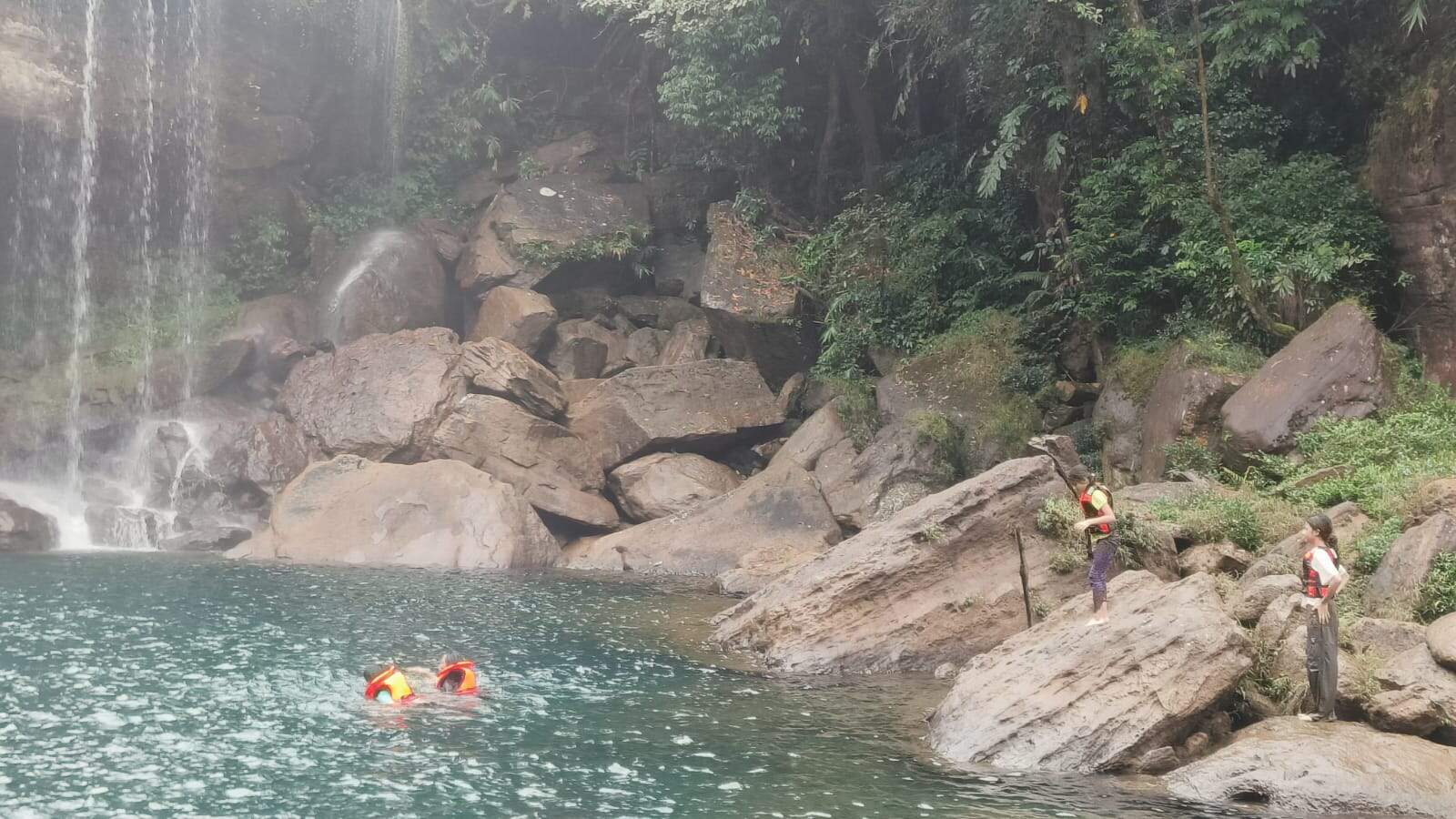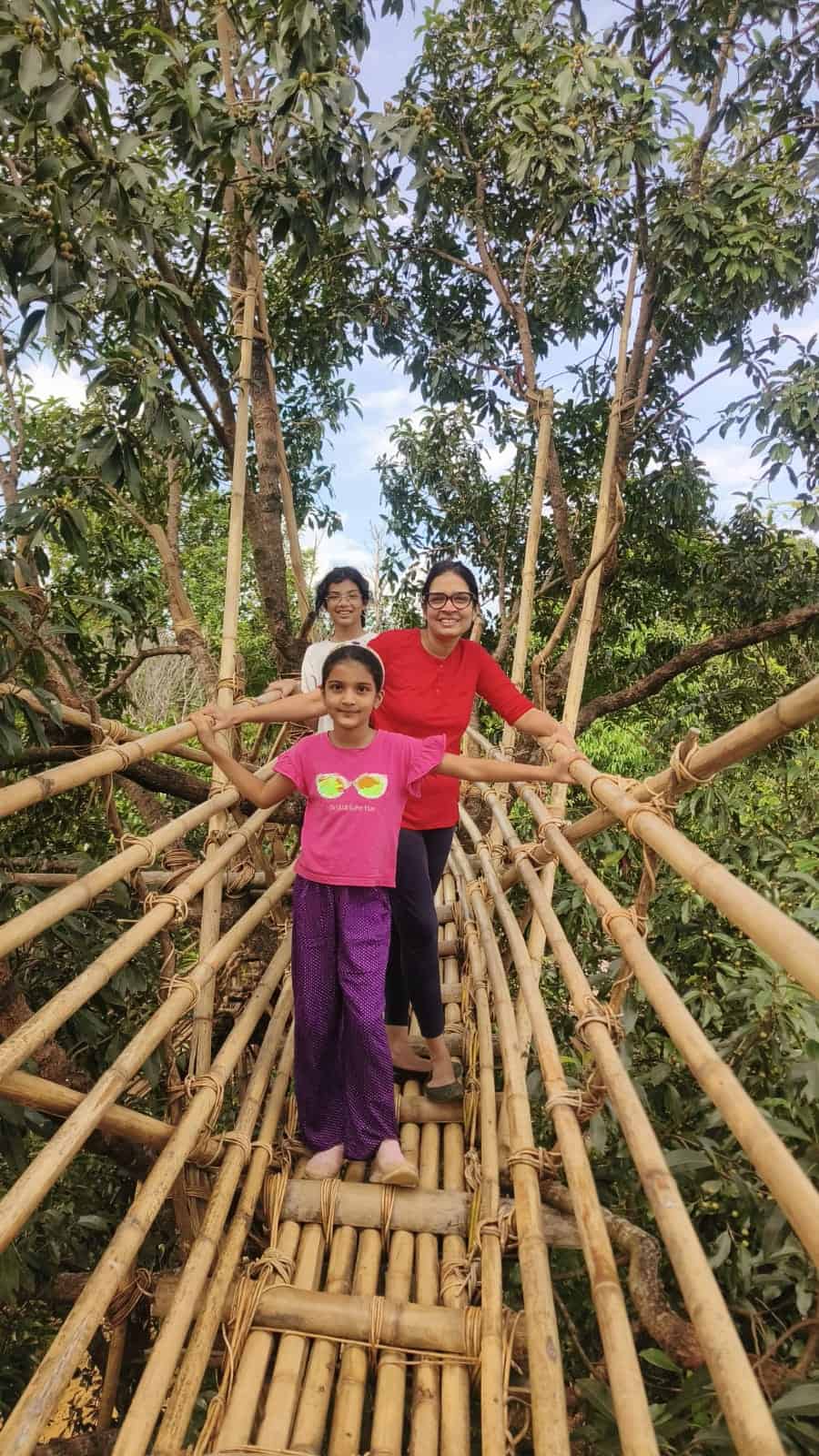Through Meghalaya, Angira Singhvi Lodha learns the Khasi way rooted in purity, simplicity, and nature

Travel teaches. It teaches history, humility, perspective, and sometimes even discomfort that unsettles you enough to open your eyes wider. On my recent visit in Meghalaya, travel taught me something far more profound than I had expected. It taught me a way of living. A way of belonging. A way of celebrating. The Khasi way.
When we think of Meghalaya, our minds often jump towards postcard images. Rolling Khasi hills wrapped in clouds, waterfalls tumbling like white ribbons, forests dense enough that they swallow sound. All of that is true. Yet what struck me far deeper was not the landscape, but the people who live with it. Not around it, not despite it, but with it.
The moment I entered the Khasi belt, the first thing I noticed was the cleanliness. Not the forced cleanliness of a token Swachh Bharat drive around Gandhi Jayanti where people stage a picture, but the effortless, instinctive cleanliness that arrives through a collective mindset. Streets were clean not because someone swept them that morning, but because no one littered. Dustbins were used. Waste was segregated visibly, consistently, without fail.
Single-use plastic, still present like everywhere in India, was handled responsibly. I almost drifted towards my usual NCR lecture about reducing plastic at the source, then stopped myself. When your AQI floats under 20 and ours hovers above 400, any moral right that NCR carries evaporates. They clearly know something we fail at.
One moment stayed with me for hours. Children, barely ten, correcting adults who littered. Not rudely. Not self-righteously. Matter-of-factly, as though picking up trash or reminding someone was the most obvious thing ever. That kind of cultural conditioning cannot be taught through a chapter in school or a slogan. It is lived, observed, absorbed at home, in community spaces, and in the rituals of daily life.
Then I discovered something even more fascinating. Unlike most parts of India where festivals revolve around temples, pandals, shrines, or religious sites, locals told us their way of celebrating is completely different. They celebrate by walking towards the forest. Not for worship of an idol housed within walls, but for honouring the forest itself, the living, breathing temple of their ancestors.

“We don’t go in temples or churches,” one guard told us with a warm smile. “We go inside the forest and celebrate our rituals. That place gives our blessings.”
This was not metaphor. This was practice.
In the Khasi worldview, the forest is not a resource. It is a relative. Sacred not because someone once declared it sacred, but because it sustains, protects, nourishes their community every single day. Their festivals, gatherings, rituals, and ceremonies unfold under the shade of trees, on soft forest floors, beside streams that still run clear. Their faith is not built in stone. It is lived in the soil.
Contrast this with our secular India. A country that claims spiritual depth, yet expresses spirituality in ways that scar the very environment we claim we revere. Every festival becomes an opportunity for excess. Gifts wrapped in layers of plastic packaging, decorative items that last a day but pollute for decades, gifting paraphernalia used once and discarded, mounds of thermocol, plastic flowers, glitter, synthetic lights. Our enthusiasm carries no match. Neither does the waste we generate. Every celebration seems capable of birthing a new landfill. Every season becomes a season of accumulated guilt disguised as joy.
In NCR, we breathe air so toxic that it routinely crosses 400 on the AQI scale. Festivals add pollutants in the name of joy. Diwali, Christmas, anything in between. The outcome stays secular exactly like the country. During my time in Meghalaya, surrounded by forests, clear air, and a community that takes pride in preserving its natural heritage, the contrast felt almost embarrassing. How have we reached a point where the most educated, urban, and supposedly aware citizens contribute the most towards environmental degradation, while communities called remote or traditional show the rest of us what true sustainability looks like?
The Khasi way is not built on grand policies or fancy infrastructure.
It stands on values. Simplicity, responsibility, and an intuitive understanding that nature is not ours for exhausting.
Their festivals do not generate truckloads of garbage. Their celebrations do not require barricades, loudspeakers, artificial decorations, or massive constructions. These gatherings are rooted in community. Dancing, singing, storytelling, gathering, acknowledging the forest as witness and participant.
Their air stays clean. Their streams stay clear. Their hills remain untouched.
I carry hope that expanding tourism and our careless attitude do not spoil their landscape in the way Uttarakhand now suffers.
Cities that choke, congest, gasp need lessons that only the Khasi way can teach.
I am not suggesting that we abandon our traditions or dismantle our ways of celebrating. Yet surely we can reimagine them. Surely we can retain the joy while discarding the waste. Surely we can honour nature, not as an optional add-on, but as the centrepiece of every celebration. This year, I used baskets and boxes for packing homemade mithais and achaars inside used containers. I made an effort for creating things paired with an effort for avoiding unnecessary packaging.
Let this secular nation experience a single exception. In how we celebrate. Let us borrow the Khasi spirit, not their rituals, but their reverence.
Let us celebrate simply. Cleanly. Consciously.
Let us make respect for nature our shared faith.
Then maybe one day, we too can breathe fresh, guilt-free air, the khaas Khasi way.
About the Author

A travel writer, legal strategist, and cultural observer, Angira Singhvi Lodha uncovers stories where tradition meets sustainability. With the perspective of an international lawyer and keen traveller, she documents journeys that question how we celebrate, belong, and honour nature, highlighting lived wisdom, harmony, and reverence beyond monuments.
At Khaitan & Khaitan, she advises on complex transactions spanning technology, intellectual property, and corporate strategy. When not navigating boardrooms, she seeks out places where cleanliness is instinctive, where rituals unfold under open skies, and where sustainability is part of the culture.
Read more – Latest



